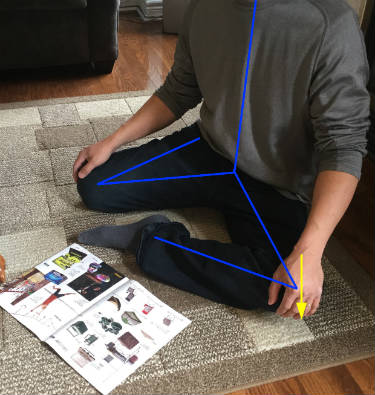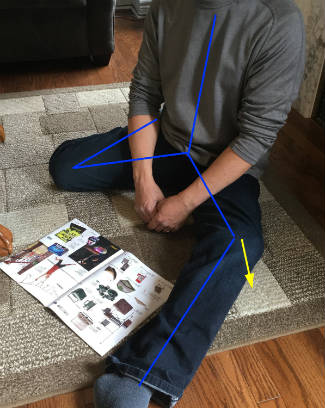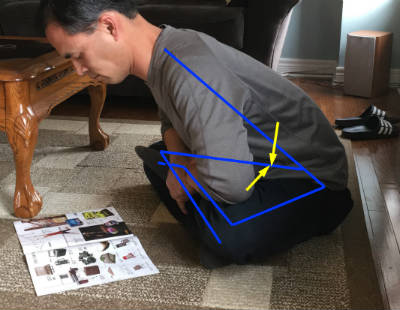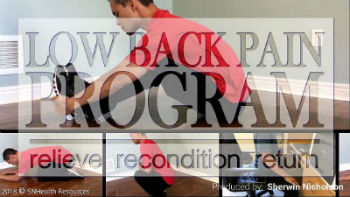Sit on the floor THIS WAY to protect and save your back from hurting
Sherwin Nicholson | Updated July 1, 2025

Sitting with your legs in this position is a much healthier alternative to chair sitting
Dont get caught sitting the wrong way. You may struggle to get up!
If you need to spend the greater part of your day while seated, here is a better way to do it to reduce your risk of both hip and back pain. It will allow you to sit for a longer amount of time and you’ll be a lot more productive (or at least more comfortable).
This way to sit is great because it will help you to discover a better alternative to just sitting slouched on your chair.”
Even if you may have a backrest or lumbar support to assist you, these methods are still less than ideal. What you really want to do while you are seated is to retrain yourself to sit upright without slouching.
If you must sit, then learn here how to avoid pain while seated at work.
Sitting without slouching is key to relieving your discomfort. There is zero benefit and nothing but increased harm from slouching, so do your best to avoid it.
What you need to do for this method of sitting:
The goal is to be able to use this method as the next alternative to sitting in a standard chair.
You will need to sit on the floor (preferably padded) while laying your reading or work based material in front of you.
Here you simply:
- Sit on the floor with you back straight
- Lower one knee/leg outward to the side
- Lower the other knee/leg inward to that your outside shin faces outward
For assistance, sit on a cushion or two to elevate yourself higher from the floor. Doing this will make this position easier for you.

You can also sit with one leg extended to help ease into this position slowly at first.
NOTE:
If you are generally fit, this position shouldn’t be too much of a challenge for you.
You most likely can proceed with your office/leisure based activity. You’ll notice that this position allows your back to remain more stable and much less likely to slouch while it is much safer for your spine.
If you do find this position too challenging…
This is a warning sign that both your hip flexibility and lower back require attention and reconditioning.
Depending on how well you are seated, you must take the time to correct these limitations. If not taken care of, your spine and specifically the discs and facet joints will inevitably suffer. There is a wealth of information available here on this site to empower you and steer you in the right direction.
To make it easier for you, sit on some cushions.
The true benefits of this way of sitting
- It improves your hip flexibility and range of motion
- It provides greater stability to your spine
- It protects you from slouching and encourages less reliance on any lumbar support
- It encourages you to use your lower body actively to prevent injury
It may not be easy for you to get into this position initially, which is why it’s better to start by sitting on a few cushions. However, the more that you sit this way, the better your joints will feel as traditional chair sitting is a very harmful way to remain seated.
This new way of sitting is not a perfect solution but it is a better alternative and it can help to break up the strain that can come from sitting at your desk for a long time.
You can slowly incorporate this new method just a few minutes at a time and build on the amount of time that you can do it. I would recommend it also as an alternative to any painful couch sitting while watching screens.

Encourage greater hip flexibility by overlapping your legs for short periods of time.
To help you with your hip flexibility, sit with your legs overlapped. Do this for a few minutes but be sure not to allow your back to slouch for too long a time.
As in the image above, you can lean forward while resting your arms (and a fair amount of your weight) on your shins. This is help to take some of the strain off of your lumbar spine.
As your hip flexibility gradually opens up, you’ll be able to resume into the seated positions of the previous images at a faster pace.
So start now! It’s a new way to sit and you’ll be better off for it.
Get the Video Stream Now to learn many techniques for relieving your back pain!
If you would like more help for sitting:
How to sit at work for more relief

